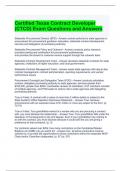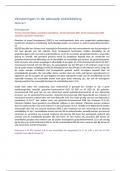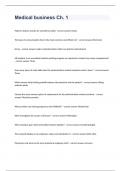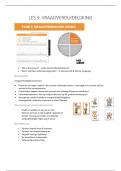Samenvatting
Health, Economic Development and Policy () - Literature summary
- Vak
- Instelling
COMPULSORY LITERATURE SUMMARY - 2018/2019 Lecturer: Rieger Health and nutrition are important inputs to individual well-being and economic development. Individual and population health in turn are driven by individual income and public resources allocated to the health sector. This two-way relati...
[Meer zien]












